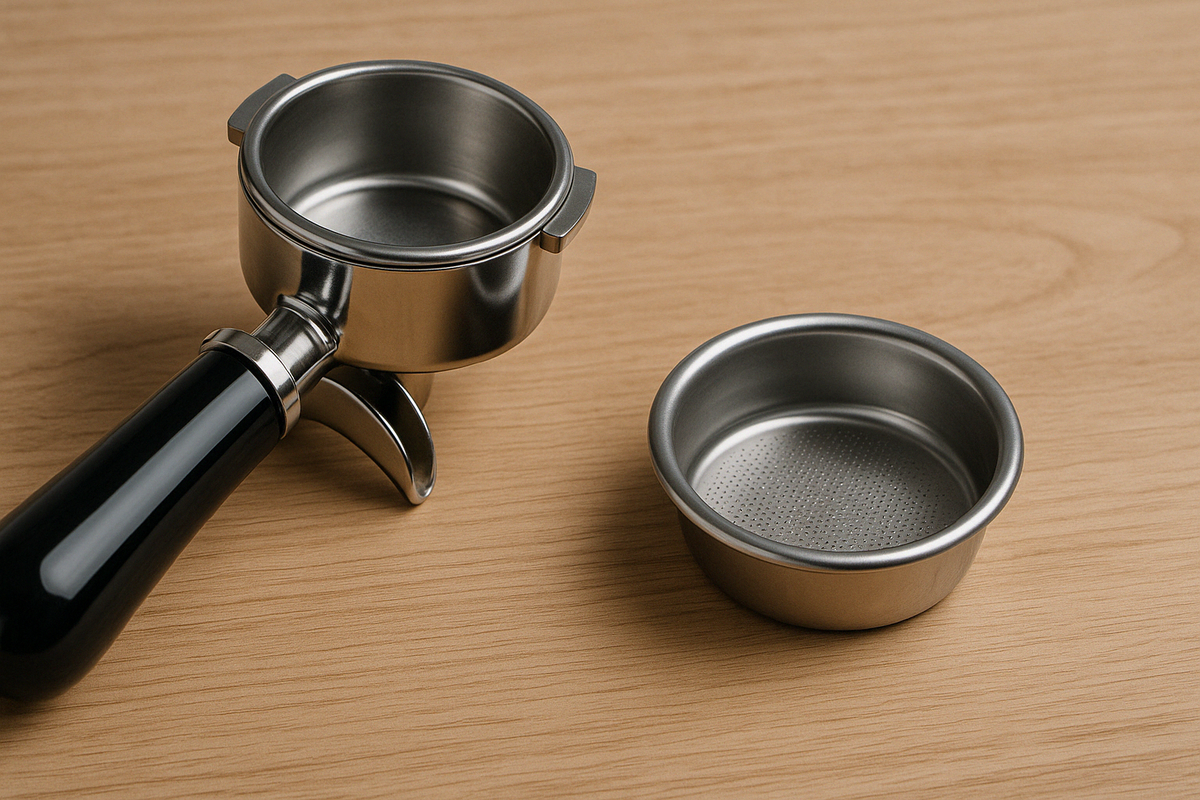
What Is the Difference Between a Portafilter and a Filter Basket?
|
|
Time to read 3 min
Brew Better with Brewedco - Free shipping over $100 / $9.95 Express Shipping
Brew Better with Brewedco - Free shipping over $100 / $9.95 Express Shipping
Brew Better with Brewedco - Free shipping over $100 / $9.95 Express Shipping
Brew Better with Brewedco - Free shipping over $100 / $9.95 Express Shipping
Brew Better with Brewedco - Free shipping over $100 / $9.95 Express Shipping
Brew Better with Brewedco - Free shipping over $100 / $9.95 Express Shipping
Brew Better with Brewedco - Free shipping over $100 / $9.95 Express Shipping
Brew Better with Brewedco - Free shipping over $100 / $9.95 Express Shipping
Brew Better with Brewedco - Free shipping over $100 / $9.95 Express Shipping
Brew Better with Brewedco - Free shipping over $100 / $9.95 Express Shipping
Brew Better with Brewedco - Free shipping over $100 / $9.95 Express Shipping
Brew Better with Brewedco - Free shipping over $100 / $9.95 Express Shipping
Written by: Laurie Nance
|
Published on
|
Time to read 3 min
Ever wondered why your espresso shot tastes different despite using the same beans?
If you're getting into home espresso brewing, you've probably come across the terms portafilter and filter basket. Many baristas—especially those starting out—often confuse the two or assume they're interchangeable. But understanding their distinct roles can genuinely improve your coffee-making skills. Here's what you really need to know.
A portafilter is essentially the handle and holder that attaches to your espresso machine. It's where your coffee is loaded, locked into place, and extracted under pressure. Typically, portafilters are made from durable metals like stainless steel or brass to retain heat, ensuring consistent extraction temperature.
You'll find two main types of portafilters: the classic spouted type and the increasingly popular bottomless or "naked" type. A bottomless portafilter, like the ones we offer, allows you to visually inspect how the coffee is extracting, making it easier to identify issues like channeling.
[collection-carousel="portafilter"]
A filter basket, on the other hand, sits inside your portafilter. It's the small, perforated metal basket where your coffee grounds are placed. The holes in the basket regulate the flow rate and extraction pressure—key to pulling the perfect shot.
I noticed many home baristas tend to overlook basket quality, but upgrading to a precision basket can dramatically improve espresso flavour. Precision baskets typically have more uniform and precisely machined holes, promoting even extraction.
[collection-carousel="precision-baskets"]
In simple terms, think of your portafilter as the holder and the basket as the insert. Your espresso quality depends heavily on both working well together.
The basket directly controls how your coffee extracts. Too many holes? Water rushes through and you'll end up with weak, watery coffee. Too few? You'll choke the machine, resulting in bitter shots. I’ve found that a basket with evenly spaced, consistent hole sizes ensures a balanced espresso.
Here's an article that dives deeper into basket quality and its impact on your espresso.
One key distinction you'll often hear about is pressurised vs non-pressurised baskets. A pressurised basket has a double wall, designed to create artificial pressure. They're forgiving with grind size and great for beginners or machines with weaker pumps. But honestly, you'll quickly hit a flavour ceiling.
Non-pressurised baskets, which most coffee enthusiasts prefer, offer more control and fuller flavours. However, they require a precise grind size and proper puck prep to get right. Using a quality self-leveling tamper and a good distribution technique (like a WDT tool) can really help.
[collection-carousel="self-leveling-tamper"]
What I've noticed from discussions among espresso enthusiasts online is that many users prefer non-pressurised baskets for their control and depth of flavour. I’d strongly recommend investing time to learn proper espresso preparation techniques—it’s genuinely worth it.
If you're curious, here's a great breakdown of pressurised versus non-pressurised baskets.
Basket size also matters. Standard baskets come in sizes like 51mm, 53mm, and 58mm. It's crucial your basket fits your portafilter and espresso machine—there’s no one-size-fits-all.
For instance, popular Australian home machines like the Breville Barista Express typically require 54mm baskets. Professional-grade machines, like Rocket or ECM, usually take 58mm. We've made it easy to find compatible accessories, like our dedicated collections for Breville Barista Express or Rocket espresso machines.
Simply put—better espresso. Upgrading from stock baskets to precision ones or switching to a bottomless portafilter can dramatically improve your coffee. You’ll have more control, better extraction visibility, and more delicious results.
Many home baristas I’ve spoken to find immediate improvements once they upgrade their equipment. It’s an investment, sure, but the payoff is noticeable. If you're serious about coffee, it's something you'll never regret.
Here's a helpful article that explains why equipment upgrades can genuinely make a difference in your espresso quality.
If you’ve read this far, you clearly care about your coffee. Getting your portafilter and basket setup right can be the easiest way to improve your espresso without buying a new machine. And remember—good espresso isn’t just about equipment; technique matters too.
If you're unsure or need personalised advice, feel free to reach out to us. We're here to help you perfect your home brewing experience.

I'm the founder of Brewedco Coffee™, passionate about coffee, coffee tools, and helping others better understand how to utilize them. With years of experience in the coffee industry, I love sharing insights on brewing techniques, choosing the right equipment, and the science behind making the perfect cup.
Thanks for subscribing!
This email has been registered!